“The food you eat can be either the safest and most powerful form of medicine or the slowest form of poison.” ― Ann Wigmore
Malnutrition is one of the leading drivers of non-communicable diseases (NCDs) and it can be linked to poor dietary intake and nutritional deficiency in childhood and adolescence. According to the World Health Organization (WHO), 71% of global mortality such as cardiovascular diseases (CVDs), diabetes, cancers and respiratory diseases is attributed to NCDs. Reducing the major risk factors for NCDs — tobacco use, physical inactivity, unhealthy diet and the harmful use of alcohol — is the focus of the WHO’s work in preventing deaths from NCDs.
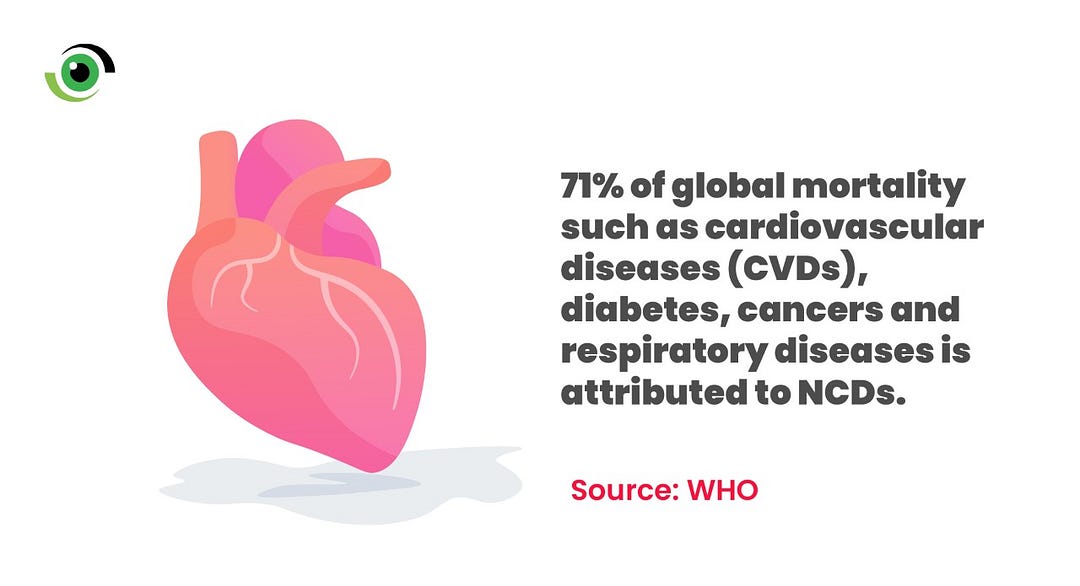
Parents and guardians as change agents for better nutrition in children
If an unhealthy diet is a major risk factor for NCDs, then addressing malnutrition by improving the quality of children’s foods and feeding practices in the earliest years of their lives could help prevent NCDs.
When a child gets the right nutrition, it not only supports growth and development, it can also initiate and reinforce healthy eating habits that contribute to overall health and well-being, that will extend into later childhood and beyond. This starts from when babies are born. The recommendation from the WHO is that breastfeeding should be initiated within the first hour of a baby’s birth with exclusive breastfeeding continuing for six months thereafter. Ifeyinwa Omesiete, a pediatric nutritionist with extensive experience in dealing with childhood nutrition said many Nigerians have over the years developed the habit of introducing highly processed cereals to their babies as early as 3 months. “This practice has in the long run led to several complications in the future such as a weak immune system, poor eating habits and disorders, obesity and a host of others”, she added.
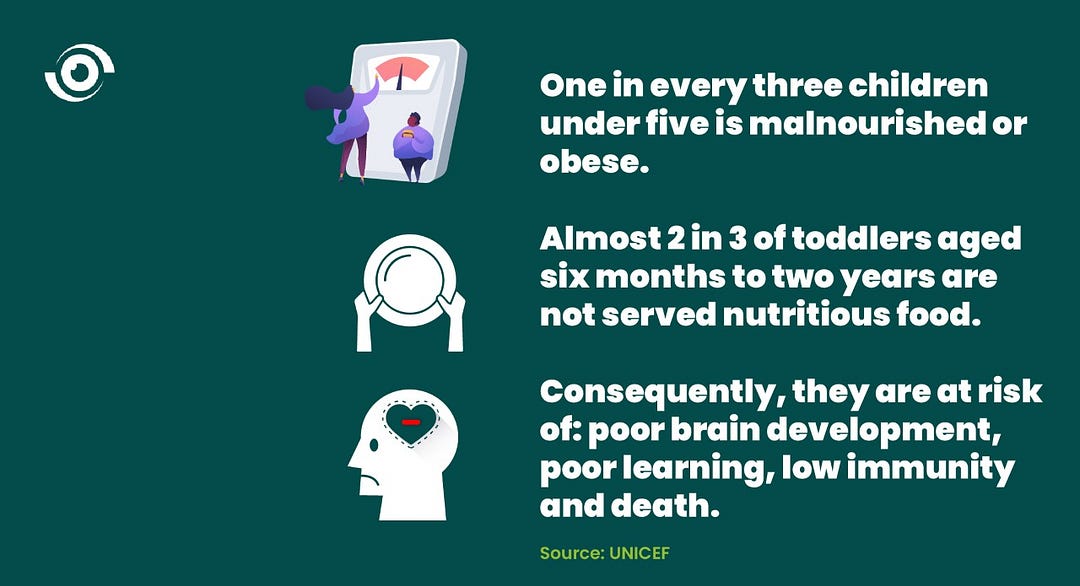
Rebecca, a mother of two, said when she was pregnant with her first child, she made up her mind to buy canned foods for her baby. Nothing she was told during her antenatal classes changed her mind because she believed that babies who fed on breastmilk only, were not as healthy as babies who were fed mostly canned baby food. But then she noticed that although her baby was eating well, his growth and development appeared slower than expected, and became worried. So, when her second baby came, Rebecca said she made sure she read extensively on how to feed her baby. Her second son is healthier than her first and she believes it’s tied to his nutrition. “Children don’t always want what is best for them. It is the parents’ or guardian’s responsibility to make sure they eat healthy meals and imbibe healthy eating habits. You do your best and hope that these habits stay with them when they grow up and leave home”, Rebecca added.
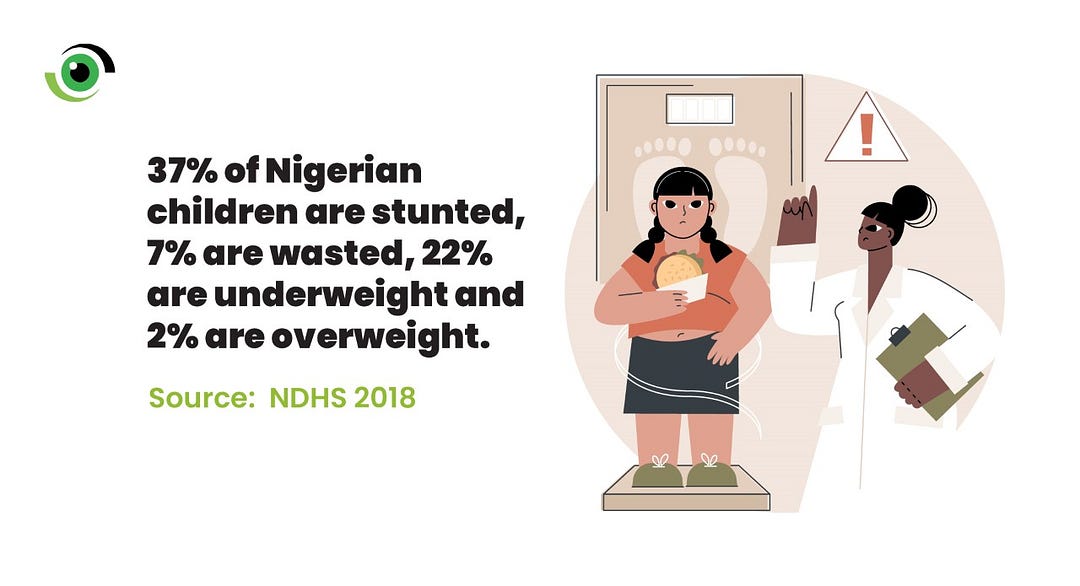
Eat what you grow and grow what you eat
According to the State of the World’s Children 2019 report, at least 1 in 3 children under five is either undernourished or overweight and almost 2 in 3 children between six months and two years of age are not fed food that supports their rapidly growing bodies and brains. This puts them at risk of poor brain development, weak learning, low immunity, increased infections and, in many cases, death. Omesiete said that the consumption of highly processed and flavored cereals is a major cause of poor dietary outcomes in children. “If drastic measures aren’t taken immediately, there just might be other health conditions in children, waiting to unveil themselves”, she added.
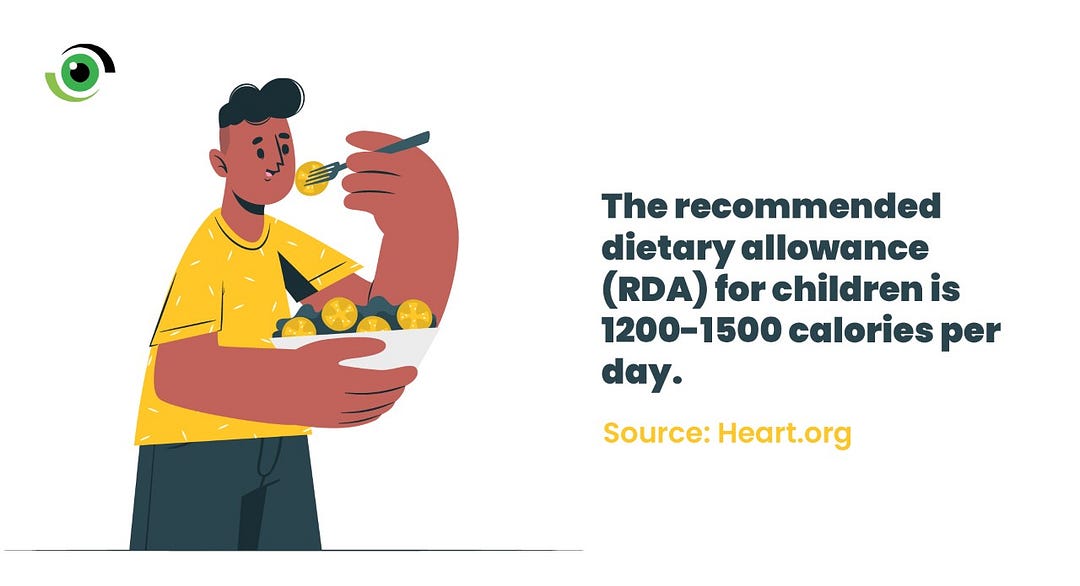
The benefits of replacing unhealthy foods with healthy options like readily available and in seasonal fruits and vegetables cannot be overemphasised. However, certain factors such as the high cost may limit a parent or guardian’s ability to provide these healthy options. They could consider cultivating home gardens to grow some of these fruits and vegetables. This was one of the recommendations at a Nigeria Health Watch policy dialogue titled, “ Our Nutrition Crisis: Considering Local Alternatives ”. Nigerians were encouraged to engage in backyard farming in order to ‘grow what they eat and eat what they grow’, to curb malnutrition.
What more can be done?
It has been said that the long-term health and vitality of a nation depends on the wellbeing of its children. This is cause for concern especially for a country like Nigeria which is dealing with the triple burden of overweight, anaemia and stunting. If a child’s nutrition is deficient, it threatens their short and long-term wellbeing, and they might grow up either stunted and wasted or obese and overweight and prone to developing NCDs. This will in turn increase health care costs, reduce productivity, and slow economic growth, which can perpetuate the cycle of poverty and ill-health. According to the National Demographic and Health Survey 2018, 37% of Nigerian children are stunted, 7% are wasted, 22% are underweight and 2% are overweight.
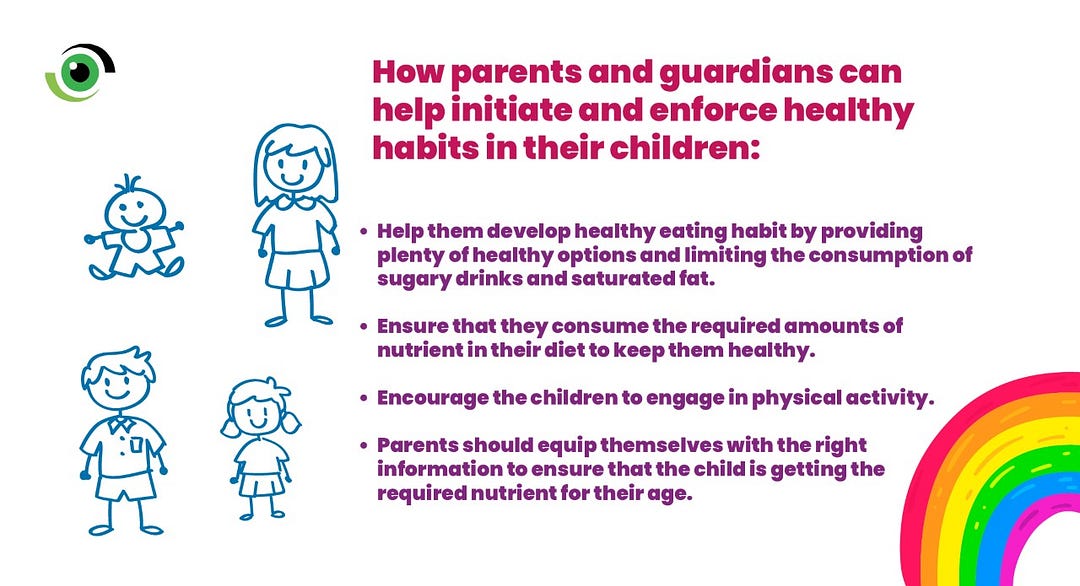
Parents and guardians play a critical role in helping to initiate and enforce healthy habits in children from birth and the following should be done:
- Help children to develop healthy eating habits sby providing healthy options and limiting the consumption of sugary drinks and saturated fat.
- Ensure that children are consuming the required amount of daily nutrients in their diets to keep them healthy.
- Encourage children to engage in physical activity. The Draft 2020 National Sports Industry policy recommended an amendment to the Child Rights Act to incorporate provisions for sporting activity for children of all ages regardless of ability, gender, culture, and physical disadvantage.
- Parents should equip themselves with the right information to ensure that the child is getting the required nutrient for their age.
The daily recommended dietary allowance (RDA) for school children varies by the age of the child. However, it is recommended that children consume: 1200–1500 calories per day.


